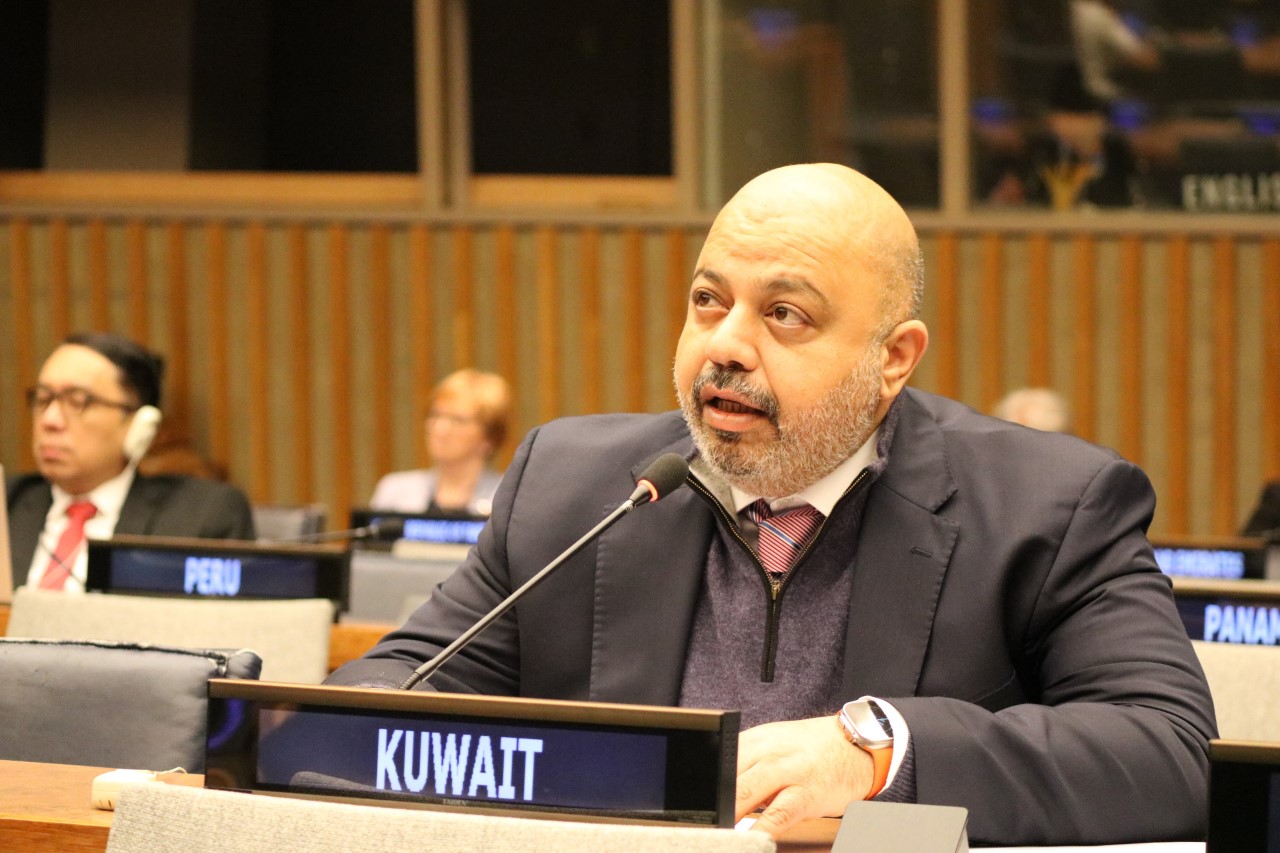New York, US— Kuwait’s permanent envoy to the UN, Tareq Al-Bannai, has affirmed Kuwait’s continuous efforts to make the Middle East a nuclear and weapons of mass destruction-free zone.
The remarks were made during an event organised by Kuwait’s permanent mission to the UN late Tuesday, and attended by Permanent Representative of Austria to the UN Alexander Marschik and Political Affairs Officer at UN Department of Political and Peacebuilding Affairs Blanca Montejo.
Kuwait’s efforts include taking part in international events on the matter, said Al-Bannai, adding that the country will take part in the Conference on the Establishment of a Middle East Zone Free of Nuclear Weapons and Other Weapons of Mass Destruction next month, which Kuwait had chaired in 2021.
Creating this zone is the responsibility of the 191 member-countries in the treaty on the prohibition of nuclear weapons, said the ambassador.
Al-Bannai noted that the main fear comes from the impact of nuclear weapons on civilians and the environment.
Countries have failed to implement a full weapons-embargo, despite decades on continuous efforts, especially as tension between nuclear countries is rising, which in return, threatens the lives of millions of people, said Al-Bannai.








